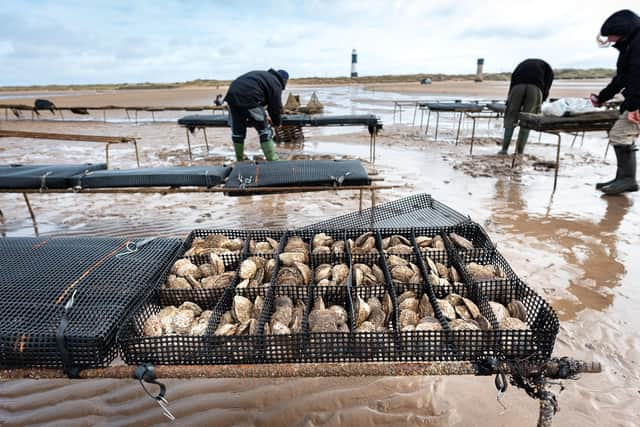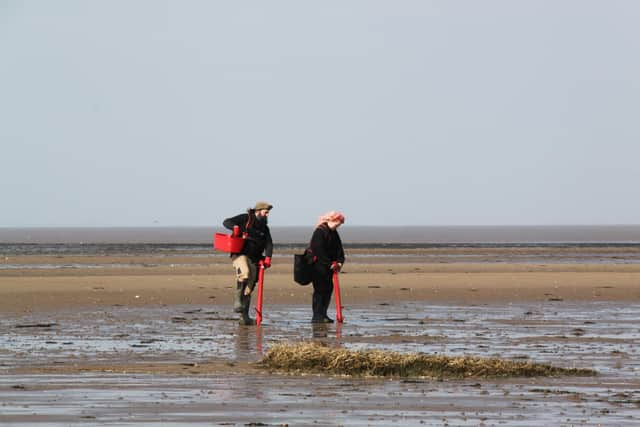Rewilding the Humber as plans emerge to restore seagrass and oysters to estuary
But that could be set to change with a new project spearheaded by Yorkshire and Lincolnshire’s branches of The Wildlife Trust and renewable energy company, Ørsted.
Wilder Humber is described as “an ambitious five-year programme to restore marine habitats and species throughout the Humber estuary.”
Advertisement
Hide AdAdvertisement
Hide AdIt is hoped that the programme will go some way to addressing the loss of precious habitats for wildlife in the estuary, including dunes, saltmarsh, and seagrass.


Seagrass in particular has suffered devastating losses during the last century with recent research estimating that at least 44 per cent of the UK’s seagrass has been lost since 1936, of which 39 per cent has been since the 1980s.
A “seascape model,” incorporating the reintroduction of some of these habitats is set to restore 30 hectares of lost seagrass meadow at Spurn Point.
Seagrass provides rich nursery habitats, breeding and feeding grounds for a vast array of species, including shore crabs, juvenile flatfish, bass, brent geese and other wading birds
Advertisement
Hide AdAdvertisement
Hide AdIn addition, there are plans to rebuild the Humber’s lost native oyster population to over half a million oysters, as well as working with local communities to tell the story of the restoration via community events and school visits and providing volunteering opportunities for people to take part in wildlife conservation in the Humber estuary.


Rachael Bice, chief executive of Yorkshire Wildlife Trust, said: “The time has come for bigger, bolder action on seascape and seagrass restoration, following good results from our earlier trials.
"This pioneering programme delivered by an exciting partnership is a crucial step forward. We expect to see huge improvements to water quality, richer marine habitat providing a better home for more birds, seals and fish across the estuary and beyond.”
Benj Sykes, head of environment at Ørsted, said: “The diversity of life on planet Earth is our natural life-support system, but it’s being lost at an alarming rate.
Advertisement
Hide AdAdvertisement
Hide Ad"Climate change is accelerating this trend and it’s vital we address the global climate and biodiversity crises urgently.
"At Ørsted, we firmly believe that we can find ways to increase the build out of much-needed renewable energy whilst delivering a positive impact on nature.
"Through collaboration with conservation and restoration experts, like The Wildlife Trust, we want to pioneer biodiversity projects that will make a real and lasting difference.
"Our partnership with Lincolnshire and Yorkshire Wildlife Trusts is a major step towards that ambition in the UK.”